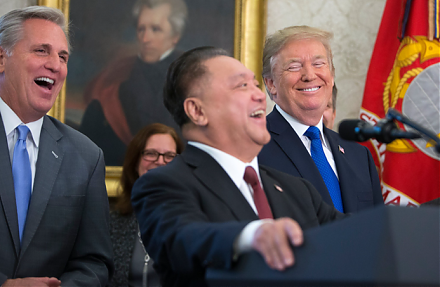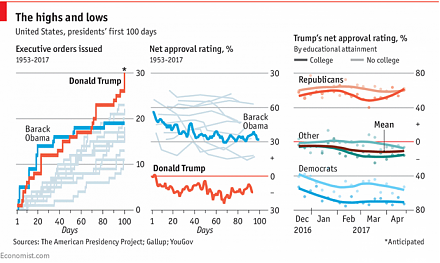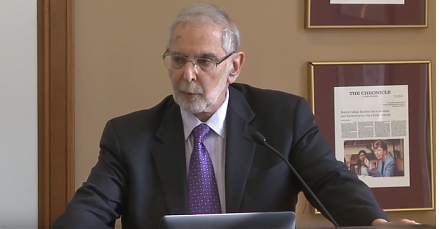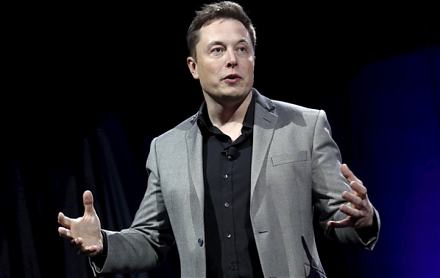

2018-11-23 09:39:00 Fri ET
technology antitrust competition bilateral trade free trade fair trade trade agreement trade surplus trade deficit multilateralism neoliberalism world trade organization regulation public utility current account compliance
Former White House chief economic advisor Gary Cohn points out that there is no instant cure for the Sino-U.S. trade dilemma. After the U.S. midterm elections, the major trade issues remain on the radar (as Republicans secure a stronger majority in Senate and Democrats flip the House of Representatives).
First, the U.S. bilateral trade deficit with China is about $300 billion, and President Trump seems to be uncomfortable with the key fact that this trade deficit is so large. Cohn disagrees with the presidential view because he alternatively views this trade deficit as $300 billion worth of goods that America can purchase from China in a cost-effective way. However, Cohn suggests that the Chinese administration can readily resolve this issue by buying more American goods to better balance Sino-U.S. trade.
Second, the more pertinent issue is the historically unfair situation that China often forces technology transfer when U.S. tech corporations enter the mainland market. Chinese regulations require foreign tech companies to build onshore data centers and IT research labs so that Sino-American technology transfer takes place. China thus fails to pay for foreign intellectual properties such as patents, trademarks, and copyrights etc. This core issue persists at the heart of the current Sino-U.S. trade impasse.
If any of our AYA Analytica financial health memos (FHM), blog posts, ebooks, newsletters, and notifications etc, or any other form of online content curation, involves potential copyright concerns, please feel free to contact us at service@ayafintech.network so that we can remove relevant content in response to any such request within a reasonable time frame.
2025-02-02 11:28:00 Sunday ET

Our proprietary alpha investment model outperforms most stock market indexes from 2017 to 2025. Our proprietary alpha investment model outperforms the ma
2017-11-03 06:41:00 Friday ET

Broadcom, a one-time division of Hewlett-Packard and now a semiconductor maker whose chips help power iPhone X, has announced its strategic plans to move it
2017-04-25 06:35:00 Tuesday ET

This nice and clear infographic visualization helps us better decipher the main memes and themes of President Donald Trump's first 100 days in office.
2019-08-28 14:46:00 Wednesday ET

Santa-Barbara political economy professor Benjamin Cohen proposes new fiscal stimulus to complement the current low-interest-rate monetary policy. Cohen fin
2025-06-05 00:00:00 Thursday ET

Former New York Times team journalist and Pulitzer Prize winner Charles Duhigg describes, discusses, and delves into how we can change our respective lives
2018-09-29 12:39:00 Saturday ET

The Securities and Exchange Commission (S.E.C.) sues Elon Musk for his August 2018 tweet that he has secured external finance to convert Tesla into a privat